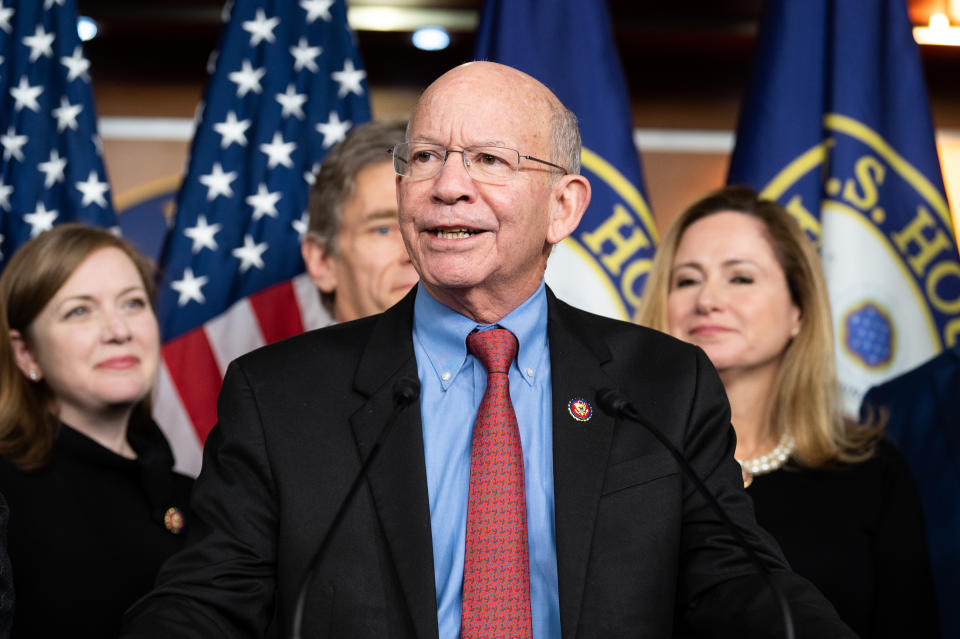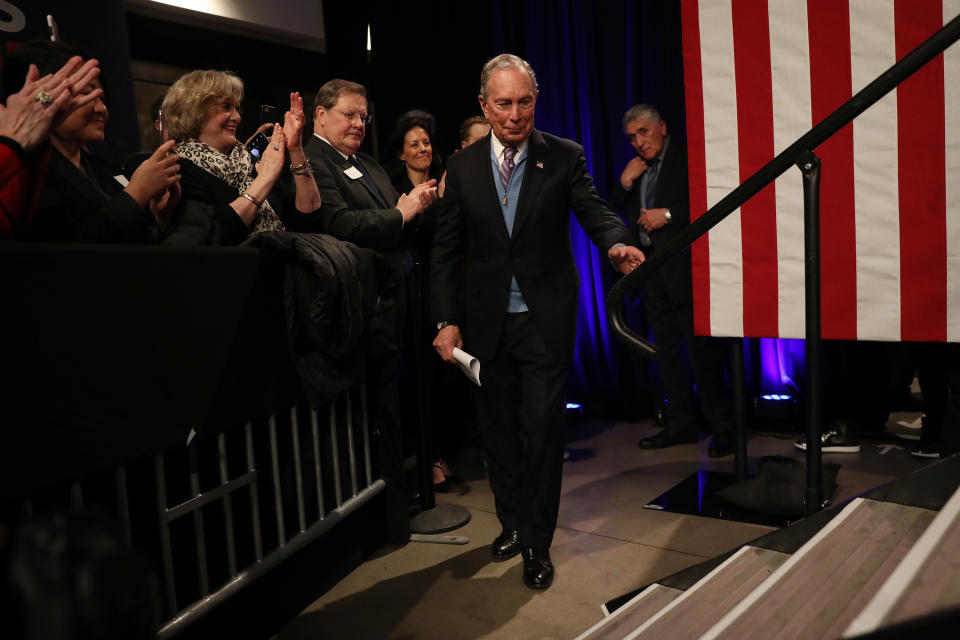Financial transaction tax: Has the chance for Democrats finally arrived?

In 1914, the United States imposed a transaction tax on all sales or transfers of stock. It was phased out in 1966.
Since then, many progressives have been hoping to bring it back.
Some Democrats are now wondering if the coming years might be a moment when the U.S. seriously considers an idea that many in the financial community oppose. Every single Democrat still in the race for president is at least open to the idea. Some have it as a central part of their platform.
“Bernie [Sanders] and I first proposed a version of a transaction tax called a Tobin tax, back in the ‘90s” said Rep. Peter Defazio (D-OR) in an interview with Yahoo Finance, adding, “I’ve been plugging away at it for a very long time.”
Many observers scoff at the chances of a transaction tax passing – even with a long-time advocate currently the front-runner for the Democratic nomination – given that the Senate could block it. At the moment, Democrats have an uphill climb to flip the the seats that would be needed to take control of the Chamber.
Even if Democrats flip the Chamber, the likely leader of a Democratic Senate is Charles Schumer. He helped stop a bill in 2009 (and introduced by DeFazio) that would have imposed the tax in the wake of the financial crisis.
‘He would risk his Senate seat’
DeFazio didn’t mince words when asked about the New York senator.
“Well, I don’t know when he’s up again, but I think he would risk his Senate seat if he opposed something that a president and a Democratic House supported in terms of taxing leeches on Wall Street who do nothing but flash trade,” he said.
Aides to the Schumer did not respond to requests for comment.
In addition to the revenue (Sanders has a bill that he estimated would generate up to $2.4 trillion over the next decade) a transaction tax would raise, DeFazio focused on how it would change investor behavior for the better by eliminating “unproductive” trading behavior.
“It would have insignificant, if any impact on pension funds because they don't churn, they don't flash trade,” he said. “If they were flash trading they would probably be violating their fiduciary responsibility. It'll have minimal impact on value investors.”
DeFazio’s bill would tax stocks, bonds, and derivatives trades at 0.1% and would raise an estimated $777 billion over a decade. Sanders proposes rates of 0.5% for stocks, 0.1% for bonds, and 0.005% for derivatives.
Opposition from the financial sector
It’s not likely the Oregon Congressman will change the minds of many in the financial community. The Investment Company Institute is the leading association representing mutual funds, ETFs, and other such entities.
According to an ICI spokesman, a tax “would cost American families billions of dollars a year,” adding that “it’s not worth the high cost to American savers.”
Half of Americans own stock, said Greg Valliere, chief U.S. policy strategist at AGF Investments, adding, “I think a lot of investors would view this with some alarm”

Valliere did acknowledged that “the tax hit would be very modest” for at least some of the proposals being floated on Capitol Hill and on the campaign trail, but that they could be increased down the road.
In the Senate, Chris Van Hollen (D-MD) and Brian Schatz (D-HI) have been working with DeFazio. “A small financial transaction fee on these high-rollers will help curb risky behavior while generating revenue that we can invest in growing our economy, improving public education, and creating new jobs,” Van Hollen said in a statement to Yahoo Finance. “I’m glad to see presidential candidates embrace this common-sense solution.”
In the end, the fate of a financial transaction tax could be decided not on the campaign trail, but in the economies of Europe.
Eight European countries, as of 2019, currently levy a tax. Other countries are reportedly interested in implementing or changing their current tax. A tax across the European Union has even been debated. European economies have continued to grow but claims from the U.S. campaign trail that it "didn't affect their financial markets at all" has been debunked.
Speaking about Europe, DeFazio noted that if “it shows that their economy didn’t collapse and they raised some money out of it, then I think, we’ll make some progress. Otherwise, it’s a heavy lift.”
Ben Werschkul is a producer for Yahoo Finance in Washington, DC.
Read more:
Every Democrat running for president is at least open to taxing stock trades
Bloomberg's new plan to crack down on Wall Street includes a financial transaction tax
Bloomberg is smashing Obama's record for POTUS candidate TV-ad spending
Read the latest financial and business news from Yahoo Finance
Follow Yahoo Finance on Twitter, Facebook, Instagram, Flipboard, LinkedIn, YouTube, and reddit.
